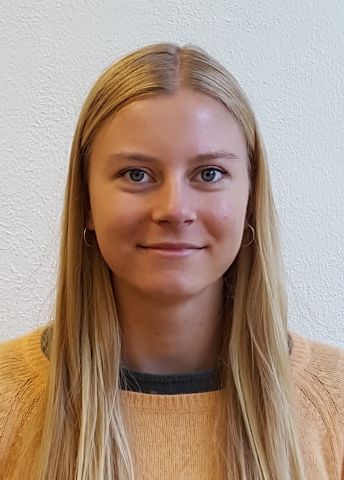
Program for mathematics 2023
Grant to a post-doctoral position abroad
Klara Courteaut
KTH
Postdoc at Courant Institute of Mathematical Sciences, New York University, USA
Grant to a post-doctoral position abroad
Klara Courteaut
KTH
Postdoc at Courant Institute of Mathematical Sciences, New York University, USA
Statistics for extreme events
Klara Courteaut will receive her doctoral degree in mathematics from KTH Royal Institute of Technology in 2023. Thanks to a grant from the Knut and Alice Wallenberg Foundation, she will hold a postdoctoral position with Professor Paul Bourgade at the Courant Institute of Mathematical Sciences, New York University, USA.
Extreme events, such as a sudden flood or a stock market crash, often arouse great attention, as do more playful questions about how fast a human can run, or how high they can jump. A theory of extreme values is the subject of the planned project.
Usually, mathematicians start with a simpler model, such as normal distribution (also called Gaussian distribution). The value of a normally distributed variable is often close to the mean value, and rarely deviates from this. The question is, what is the distribution of extreme events that stem from a normal distribution? They are not usually normally distributed, and the answer often contradicts our intuition.
One such extreme event is winning a gold medal at the Olympics. In a simple model, the population’s skill at a sport is assumed have a normal distribution in every country. The mean is also the same, as is the standard deviation, where each person’s skill at an Olympic discipline is the same. A common misconception is that the number of gold medals per country should then increase proportionally to its population size. But this is not the case – the biggest countries do not always win.
This can also be calculated using more sophisticated statistics and expanding the results to more complicated models. Then the starting point does not need to be that the random quantities are normally distributed and independent of each other, they can also have another structure, such as more dimensions.